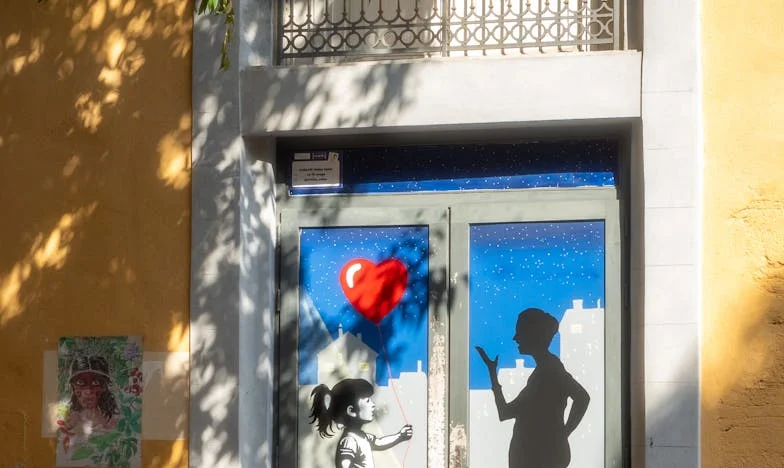The Weight of Air: Emily’s Story
“With that face, you’ll never get anywhere.” Dad’s words hung heavier than the winter coat I clutched in my fingers, standing in the yellow light of our cramped Ohio kitchen. Mom stirred her coffee but didn’t argue. She never did. I watched the steam rise and wondered what it felt like to be beautiful enough to make parents proud.
I was Emily. My hair was thin and stringy, my nose too big, ears that stuck out like satellite dishes, and skin that could never decide if it was a battlefield or just plain red. My little sister, Sarah, was the opposite—peach skin, effortless smile, and a laugh that made people want to stay. I learned to be invisible, to take up as little space as possible, drifting through high school like a ghost.
“You’ll find your thing, Em,” Sarah would whisper at night, squeezing my hand under the covers. But when Dad looked at college brochures with her, and Mom took her shopping for homecoming, I was left with silence and my battered sketchbook.
Art was my air. I drew on the backs of napkins, in the margins of textbooks, on my arms when I ran out of paper. But when I showed my parents, Dad grunted, “That won’t pay rent.”
So I worked at the grocery store, stacking shelves, blending into the beep and hum of mundane life. My manager, Mrs. Parker, was the first adult to really see me. One night, as I was sketching between shifts, she leaned over and squinted. “You ever think of art school, honey?”
I laughed, bitter. “With what money? And for what? To starve in some attic?”
She just smiled. “Sometimes you gotta breathe different air to know you’re alive.”
That phrase stuck with me. Breathe different air.
After graduation, Sarah went to Ohio State on a cheerleading scholarship. I stayed. Dad’s health started to fail, and Mom needed help with bills. I picked up more hours, my dreams shriveling like grapes left in the sun.
But at night, I drew. Faces, bodies, the twisted ache of loneliness. I posted my work online, anonymously. One morning, I woke to an email from a gallery in Brooklyn: “We love your raw perspective. Would you consider a showing?” My hands shook as I read the words over and over.
I told Mom over breakfast. Her spoon clattered. “Emily, New York? With your looks, you’ll get eaten alive.”
Dad didn’t look up from his phone. “People like us don’t belong in places like that.”
Sarah, home for the weekend, squeezed my arm. “You got this, Em. You have to try.”
I spent the next month scraping together money, between paychecks and tips. My parents barely spoke to me. The night before I left, Dad stopped me in the hallway.
“You’re stubborn. Like your mother. Don’t expect us to bail you out.”
I nodded, swallowing the lump in my throat.
New York was a punch to the senses. Noise, color, people who didn’t look twice. I crashed on a stranger’s couch—another artist, Maya, who wore paint-splattered jeans and called me “Em the Brave.”
The gallery was small, the walls peeling, but when my sketches went up, people stopped. They stared. A woman in a red scarf wiped her eyes. A man asked to buy three pieces. For the first time, I felt seen—not for my face, but for what I made.
I FaceTimed Sarah that night, the city lights flickering behind me. “I sold something. Someone liked my work.”
She grinned. “Of course they did. You’re brilliant.”
But when I called home, Dad just said, “Don’t let it go to your head. Remember who you are.”
That winter was brutal. I worked in a diner, sketched in the corners, sent money home when I could. I missed birthdays, funerals, the simple comfort of family meals. Every call with Mom was a guilt trip: “Your father’s not well, Emily. You should be here.”
But in New York, I found family in other misfits—the girl who sang at subway stops, the boy who photographed strangers, the old woman who painted every sunrise from her fire escape. Together, we made something out of nothing.
Still, I wondered every night: Was I selfish for leaving? Was art worth the price of distance, of missed moments, of being the black sheep?
One spring, Dad had a heart attack. I took the first bus home. The hospital smelled of bleach and lost hope. Mom clutched my hand, eyes red.
“He wanted you to stay. To be safe.”
I sat by his bed, tracing the lines of his weathered hand. When he woke, he looked at me for a long time. “You always had your head in the clouds. I just didn’t want you to fall.”
“I have to try,” I whispered. “Or I’ll never breathe.”
He squeezed my fingers, weak but real. “Just promise me you’ll remember us.”
I nodded, tears falling.
When he passed, I painted his portrait—lines deep with worry, eyes bright with stubborn love. I hung it in the Brooklyn gallery. People asked whose father he was. I told them, “He was mine. He taught me to fight, even if he never understood what I fought for.”
Now, sometimes, I still feel the weight of their words: too plain, too poor, too strange for the world. But every time someone stops to look at my work, I remember there’s more than one kind of beauty. And sometimes, the air you need isn’t the one you’re born breathing.
Did I do the right thing, choosing my dream over my family’s wishes? Or does chasing your own breath always mean leaving someone else gasping for air?
